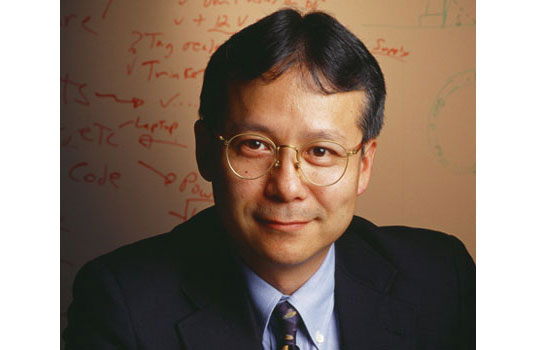Hiroshi Ishii Paints a Picture of our Digital Future
Human computer interaction pioneer presents “The Art of Tangible Bits” at RIT March 29
Webb Chappell
Hiroshi Ishii
Hiroshi Ishii, a pioneer in human computer interaction and the effort to enhance digitally augmented environments, will discuss his vision of our digital future and how it could impact daily life at 8 p.m. March 29 in Webb Auditorium at Rochester Institute of Technology. The presentation, “The Art of Tangible Bits,” is part of the Caroline Werner Gannett Project’s Visionaries in Motion Series.
Ishii, the Muriel R. Cooper Professor of Media Arts and Sciences at Massachusetts Institute of Technology, was a leader in the development of the Tangible User Interface, where humans interact directly with digital information in the physical environment. His current work focuses on advancing these interfaces to create greater interaction between humans, the machines they use and the digital environments they create.
“Tangible Bits, our vision of human computer interaction, seeks to realize seamless interfaces between humans, digital information and the physical environment by giving physical form to digital information and computation, making bits directly manipulable and perceptible,” Ishii says. “The goal is to blur the boundary between our bodies and cyberspace and to turn the architectural space into an interface.”
The scientific and artistic projects created by Ishii and his research team have been presented at numerous academic conferences and in multiple museum shows, including the three-year interactive media exhibition “Get in Touch” at the Ars Electronica Center in Australia.
Prior to joining MIT, Ishii directed the Computer Supported Cooperative Work Research Group at Nippon Telephone and Telegraph’s Human Interface Laboratories in Yokosuka, Japan.
The Caroline Werner Gannett Project was created in 2006 by Mary Lynn Broe, Gannett Professor of the Humanities at RIT. Along with the interdisciplinary Gannett Working Group, Broe brings to campus international scholars, authors and artists in lectures, colloquia and workshops that explore new connections across the sciences, technologies, social sciences and humanities. All Gannett events are free and open to the public.














